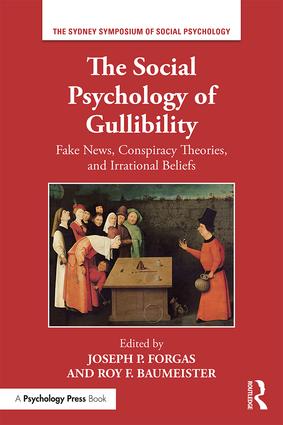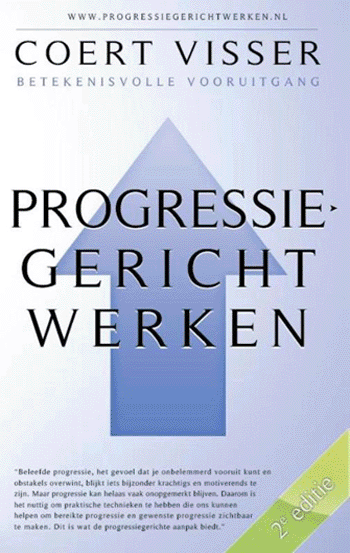De sociale psychologie van goedgelovigheid

Er is een nieuw boek verschenen over goedgelovigheid: The Social Psychology of Gullibility. Het boek bevat bijdragen van een groot aantal sociaal psychologen. Het gaat in op de oorzaken, functies en gevolgen van goedgelovigheid en de psychologische processen die het in de hand werken of afremmen. Dat de wetenschappelijke psychologie goedgelovigheid serieus gaat onderzoeken lijkt me een goede zaak in deze tijd waarin we van alle kanten bestookt worden met onwaarheden en misinformatie met alle negatieve consequenties van dien.
| Trainingen Progressiegericht Werken |
Inhoudsopgave
Contents

Chapter 1. Homo Credulus: On the social psychology of gullibility. Joseph P. Forgas, University of New South Wales, and Roy F. Baumeister, University of Queensland.
Part I. The Nature and Functions of Credulity
Chapter 2. The mask of love and sexual gullibility. Roy F. Baumeister (University of Queensland), Jessica A Maxwell, Geoffrey P Thomas (Florida state University), and Kathleen D. Vohs (University of Minnesota).
Chapter 3. Gullible but Functional? Information repetition and the formation of beliefs. Christian Unkelbach and Alex Koch, (University of Cologne, Germany).
Chapter 4. Belief in Conspiracy Theories: Looking beyond gullibility. KarenDouglas, Sutton, R. M. and Chicoka, A. (University of Kent, UK).
Chapter 5. Psychological Science Meets a Gullible Post-Truth World. David Myers (Hope College).
Part II. Cognitive processes and gullibility
Chapter 6. Towards a Credible Theory of Gullibility. Joachim I. Krueger (Brown University), Claudia Vogrincic-Haselbacher (University of Graz, Austria), Anthony M. Evans (Tilburg University, The Netherlands).
Chapter 7. Metacognitive Myopia – Gullibility as a Major Obstacle in the Way of Rational Behavior. Klaus Fiedler (University of Heidelberg, Germany).
Chapter 8. The skeptical (ungullible) mindset. Ruth Mayo (The Hebrew University of Jerusalem)
Chapter 9. Comparing is believing: Ease of comparison as a means to induce gullibility. Fritz Strack (University of Würzburg).
Part III. Affective and Motivational Processes and Gullibility
Chapter 10. On The Role of Affect in Gullibility: Can Positive Mood Increase, and Negative Mood Reduce Credulity? Joseph P. Forgas (University of New South Wales).
Chapter 11. Gullible or Streetwise: How Does the Self Bias Information Processing? C. Neil Macrae, Juliana L. Olivier,Johanna K. Falbén, Marius Golubickis (University of Aberdeen)
Chapter 12. Gullible to Ourselves. David Dunning (University of Michigan).
Chapter 13. The smell of suspicion: How the nose curbs gullibility. Norbert Schwarz (University of Southern California) and Spike W. S. Lee (University of Toronto).
Part IV. Social and Cultural Aspects of Gullibility
Chapter 14. Cultural fluency, mindlessness and gullibility. Daphna Oyserman (University of Southern California).
Chapter 15. Scientific Gullibility. Lee Jussim (Rutgers University), Sean T. Stevens (NYU, Stern School of Business), Nathan Honeycutt (Rutgers University), Stephanie M. Anglin (Carnegie Mellon University), and Nicholas Fox (Rutgers University).
Chapter 16. Gullibility and the envelope of Legitimacy. Joel Cooper and Joseph J. Avery (Princeton University).
Chapter 17. Belief in Conspiracy Theories: Gullibility or Rational Skepticism? Jan-Willem van Prooijen (VU Amsterdam).


De situatie rond Joe Biden lijkt te passen bij enkele ideeën uit dit artikel. Het laat zien hoe macht iemands…